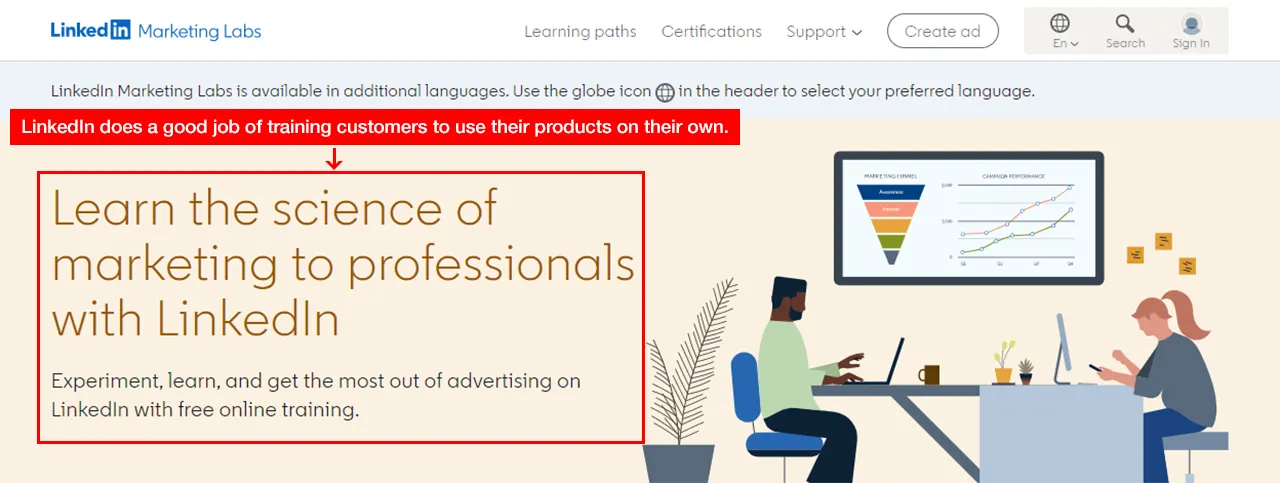We are headed for a recession! Have you seen this statement float around the internet and also being echoed by some famous CEOs lately? Well, if you have, then there may be a slight chance that the news did make you a little angsty. It sure has put the world on edge given that the reasons needed to push the world into a recession are only mounting, but that still does not mean that your organization has to face the consequences of recession if it ever materializes. That is if you keep the following few points in mind. We are talking about how training can STOP economic recession challenges.
Should You Invest in Training During a Recessive Economy?
How Training Can STOP Economic Recession Challenges
Ok, so investments of any kind seem like a big risk during a recessive economy, at least that’s what common logic dictates. However, training is as an investment made to mitigate the effects of a recession.
Since training has the ability to prepare your workforce to manage the negative effects of a recession, it is one of those investments that actually fall in the category of risk-mitigating investments. And risk management or mitigating investments are the best investments to make in the face of turbulent times.
5 Ways Training Can STOP Economic Recession Challenges
Although a recession can be unpredictable and difficult to manage, here are some steps that organizations can take by implementing training programs designed to cushion the impact of a recessing economy in the near future.
Preparing Employees to Take on Additional Roles
During the Covid-19 pandemic, we witnessed the effects of cutbacks in hiring. We also understood the impact that understaffed businesses had on their workforce and the problems of mass layoffs that affected both the exiting and the retained workforce.

Keeping this recent experience in mind, it’s ok to assume that a recessing economy may bring back this problem. Some organizations have already cut back on hiring like Tesla Motors which has asked senior officials to stop hiring across its global units and has indicated that it may cut staff by up to 10% in order to prepare for the ‘inevitable recession.’ Now, we may not be qualified to completely back or refute this decision, but what we can say is that this decision by Tesla puts additional stress on employees that are retained and on employees who may be asked to exit.
What we recommend is that any organization that is considering similar actions, must first put a training framework in place to prepare employees to take on additional roles. Simply put, upskill employees to do more than what they already can.
Upskilling employees allows your retained workforce to achieve equivalent productivity, if not more, during the event of a staff cutback. Upskilling also prepares your exiting employees with new skills, thereby increasing their chances of quickly landing a new job as they exit. Logically, it’s the first step that companies should take in order to ensure that every person associated with the company stands to gain something during such a crisis.
Improving Processes to Reduce Wastage
The next area to look into is reducing wastage. Whether it is manufacturing or the service-based industry, wastage is a common problem that plagues the bottom line of businesses.
Think about the inefficient manufacturing practices of production houses or the overspending habits of company executives whose bills are directly footed by the company. Wastage can take on many forms and factors.

If a manufacturing process is responsible for any kind of wastage, but it’s minuscule, the wastage is often overlooked. However, in a recessing economy, this is where they must reconsider. For example, food and fashion industries are very prone to product wastage. Unsold food items with limited shelf life are often incinerated by large manufacturers with little consideration because their business model compensates for the losses they incur. The fashion industry, especially the mid to premium brands, follows this same policy. In a normal economy, it may appear ok. But during a recession, such practices will only hurt the business even more.
It’s in such situations that training can help people understand the importance of assessing correct market requirements and reducing wastage as far as possible. Training can also be used to assist these people in better understanding the process of market analyses and how to correctly apply it.
On the other hand, overspending company executives running a business into the ground is more common than you may think here’s a link to a list of such companies. However, one does not even need to overspend in order to cause trouble during recessive times. Merely spending on unrequired things such as frequently traveling or hiring expensive accommodations or throwing lavish parties and even purchasing exorbitant company assets are more than enough to become the straw that broke the camel’s back even during a flourishing economic state.
It’s doubly important for companies to train their executives to understand the importance of spending wisely and saving on unrequired expenditures. In some cases, companies may automatically cut back on these perks during the event of a recession. In such cases, it’s important to inform your employees about the rationale behind the cutbacks.

Training Decision Makers to Spend Wisely
Closely related to the previous point but not quite the same, training your decision-makers to spend wisely during a recession is a critical factor in a delicate dance of survival.
As companies need to spend in order to earn, a recessing economy will never truly stop a company from spending in order to continue its operations.
Managers and decision-makers will still be tasked with the responsibility of hiring new talent, implementing new technologies, and taking risks to earn rewards which include spending some finances. The only difference here is in their ability to correctly determine the correct trade-offs in exchange for the spending they sanction matters even more.
In simple terms, how sure are they about spending company finances on specific acquisitions during a recessive economy in order to benefit the organization?
There is no denying that a company will need new technology, greater talent, and some other spending in order to survive and even thrive. However, it all comes down to correct cash management by decision-makers. Training decision-makers on how to correctly spend finances, including informing them about the spending limits and how to assess trade-offs are highly beneficial training topics to invest in.
In fact, understanding and choosing the right training activity at the right price is a very good example of a decision-maker determining an activity to invest in so as to combat the effects of a recessive economy.
Informing Customers About Potential Downgrade in Services
As already determined, a recessing economy may force some companies to cut back on hiring new staff and even cut back on their existing workforce. In some cases, manufacturing could slow down resulting in delayed supply chains and leaving customers frustrated. Additionally, customer service may appear slow or even delayed due to the limited workforce maintained by service-based businesses.

We know this because the recent pandemic showed us some crucial areas where service may be hampered, and one of them was customer service.
Preparing customers by informing them about the cutback in services that results from cutbacks in the workforce is one way to reduce the growing customer resentment that companies may face during a recession. Another way is to actually train your customers to solve their own problems as much as possible till the economy returns to normalcy.
Even without the overhanging gloom of a recession in the picture, companies such as Meta (Facebook), LinkedIn, and Google have often relied on creating customer training modules directed at their customers with the mission to empower customer self-service.
Not only does it help these companies save on hiring budgets by avoiding large customer service teams, but it also lets their customers help themselves faster without having to wait for a resolution from the vendor’s side.
In simple terms, investing in training that informs customers about the delay in service and then empowering customers to solve their own needs is an excellent way to keep customers from resenting your business during tough times.
Training Sales Employees to Identify Your Customer’s Troubles During the Crisis
Finally, one of the only ways that your business can truly survive the recession with minimal impact is by ensuring that its sales pipeline does not dry up. With potential customers now having limited budgets to spend, it’s even more important for your sales teams to understand the art of determining your customer’s immediate needs and then work to fulfill them.

Just as your business is reeling from the effects of a recession, you must understand that a potential customer is facing a similar situation. This means that just as your decision-makers are working overtime to make the right purchase decisions for your company, so are your customer’s decision-makers. As a result, just as your company may not want to invest in an expensive undertaking, your potential customer is thinking the same.
So, what does this mean?
Since some businesses work on the reseller’s business model where the final price of a product is determined by the reseller, it’s important for manufacturers to train their resellers on the harm of overpricing a product during times of a recession – especially in a heavily contested market or industry with no dearth of options for customers.
At the same time, training in-house sales representatives to understand the economic situation and correctly quote prices is very important. Sometimes, the drive for better incentives earned by increasing the selling price of products or services may blind sales personnel and make them continuously repeat the mistake of overquoting their prices. Not only will this cost them the business deal, but it may make your company look like an amateur establishment that does not understand the intricacies of price corrections brought upon by the market. Or it may make your company look like an arrogant business that does not care about the recession that is affecting all businesses.
At the same time, underquoting your service or product with an already trimmed workforce will make the trade-off of acquiring a new client not worthy of the time or the efforts spent in servicing them. At least if your company believes in top-class service.
As you can see, the dance here is very delicate, and sales teams must tread on cautious toes in order to strike the right balance and keep their sales pipeline flowing. Training has a big role in preparing salespeople who are aware and that ensure they work in the interest of their employer without scaring their potential customers.
Who are We and Why Should You Contact Us?
We are eNyota Learning, an eLearning development agency with 15+ years’ experience in the field of eLearning development. We are the leading eLearning development partners to some of the biggest brands in their respective industries and we aren’t limited to any one industry ourselves. From employee training courses to assisting other training companies build and resell our training products as their white labelled offerings, we do it all!
The contributing reasons to a recession may not be so straightforward, however, following the 5 ways training can STOP recession challenges, your company improves its odds of surviving its brunt.
To know more about us and how we can assist your organization, reach out to us at contact@enyotalearning.com or click this link to fill a quick call back form. Also, you can try our LMS here.





